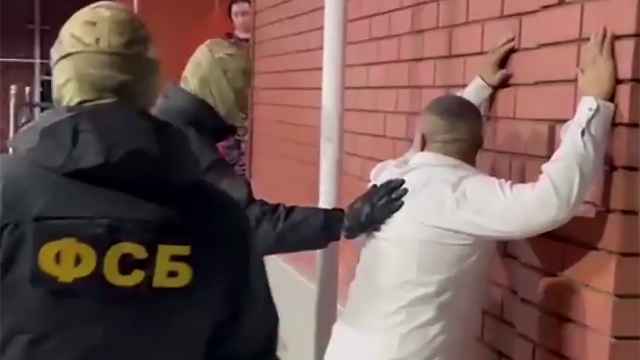A senior Russian diplomat in Panama has been injured in a knife attack by a Ukrainian man, according to the local Russian ambassador.
The Russian Vice-Consul in Panama, Yevgeny Manilov, was with two other people in the parking lot of a large business center, which also contains the Russian Embassy, on Friday morning when he was stabbed, according to local media reports.
The attacker, identified as Oleksiy Lisovenko, tried to flee the crime scene, but he was detained by local police shortly after the incident. Manilov was taken to hospital after the attack, but his injuries were not life threatening.
According to a spokesman for Ukraine's Embassy in Mexico, Lisovenko said he "had been made drunk or hypnotized" and "was in a state of a fog" before the attack.
Alexei Yermakov, the Russian ambassador in Panama, earlier suggested that the attack was carried out by a drug addict who had arrived from Ukraine several months ago.
"The Ukrainian citizen recently visited the consular department of the Russian Embassy and asked for $3,000 to $5,000. Clearly there was something wrong and he was high," said Yermakov, adding that the motive for the attack may have been revenge. "I do not exclude that, in a mind befuddled by narcotics, such an idea could arise," he said.
Local police are investigating the incident, and the embassy has requested local police and the Russian Foreign Ministry provide increased security for its diplomatic staff, Yermakov said.
A spokesman for Ukraine's Foreign Ministry, Yevgeniy Perebiynis, confirmed Saturday that the attack on the Russian diplomat had been carried out by a Ukrainian national.
Perebiynis said Ukraine's consul in Panama would meet with the suspected attacker and also have consultations with Panama's authorities and Russian diplomats.
A Message from The Moscow Times:
Dear readers,
We are facing unprecedented challenges. Russia's Prosecutor General's Office has designated The Moscow Times as an "undesirable" organization, criminalizing our work and putting our staff at risk of prosecution. This follows our earlier unjust labeling as a "foreign agent."
These actions are direct attempts to silence independent journalism in Russia. The authorities claim our work "discredits the decisions of the Russian leadership." We see things differently: we strive to provide accurate, unbiased reporting on Russia.
We, the journalists of The Moscow Times, refuse to be silenced. But to continue our work, we need your help.
Your support, no matter how small, makes a world of difference. If you can, please support us monthly starting from just $2. It's quick to set up, and every contribution makes a significant impact.
By supporting The Moscow Times, you're defending open, independent journalism in the face of repression. Thank you for standing with us.
Remind me later.





